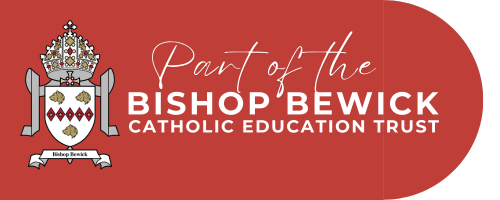
Safeguarding & Child Protection

Child Protection Concerns
If you have any child protection concerns, please contact one of the school's designated safeguarding leads (DSL):
Mrs B Brown (Headteacher & Designated Safeguarding Lead)
Miss H Rutledge (Deputy Headteacher & Deputy DSL)
Miss J Burns (Deputy DSL)
Mrs S Simpson (Deputy DSL)
Mrs R Nesbit (Deputy DSL)
Mrs T Davidson (Deputy DSL)
To read our Safeguarding & Child Protection Policy, see our policies page linked below:

Prevent Duty Statement
This statement has been developed in accordance with the principles established by the Children's Acts 1989 and 2004; the Education Act 2002, and in line with government publications: ‘Working Together to Safeguard Children’ 2013, Revised Safeguarding Statutory Guidance 2 ‘Framework for the Assessment of Children in Need and their Families’ 2000, ‘What to do if You are Worried a Child is Being Abused’ 2003. The guidance reflects, ‘Keeping Children Safe in Education’ 2014 and our responsibilities with regard to the Prevent Strategy 2011.
Aims
-
To ensure staff are aware of the Prevent Strategy and able to protect children and young people who are vulnerable or at risk of being radicalised
Managing Referrals
-
To refer any child/ren at risk of being radicalised or extremism through the Local Authority Channel Referral and Intervention processes.
Raise Awareness
-
Ensure staff and governors are aware of how to identify and respond to risks to children from extreme or radical views.
Vulnerability to radicalisation or extreme view points
The school recognises its duty to protect our students from indoctrination into any form of extreme ideology which may lead to the harm of self or others. This is particularly important because of the open access to electronic information through the internet. The schools aims to safeguard young people through educating them on the appropriate use of social media and the dangers of downloading and sharing inappropriate material which is illegal under the Counter-Terrorism Act. The school vets all visitors carefully and will take firm action if any individual or group is perceived to be attempting to influence members of our school community, either physically or electronically. Our definition of radical or extreme ideology is ‘a set of ideas which could justify vilification or violence against individuals, groups or self.’ Staff are trained to be vigilant for spotting signs of extremist view and behaviours and to always report anything which may suggest a student is expressing opinions which may cause concern. Our core mission of diversity permeates all we do. We place a strong emphasis on the common values that all communities share such as self-respect, tolerance and the sanctity of life. We work hard to broaden our students' experience, to prepare them for life and work in contemporary Britain. We teach them to respect and value the diversity around them as well as understanding how to make safe, well-considered decisions.

Operation Encompass
Sacred Heart Catholic Primary School is an Operation Encompass School which means we are notified by Northumbria Police if any of our families or children are involved in any domestic violence situations. For more information, please see the document below. This enables the staff in school to support the children involved. As an OE school, we have access to a School Safeguarding Liaison Officer who specialises in supporting and advising families with domestic abuse issues or conflict in the family home.

Domestic Abuse
The Reducing Parental Conflict Programme is an early intervention and prevention service offers parents who experience parental conflict support. Please see the leaflet attached.
Car Park
The safety of the children is our top priority at all times and therefore we ask that parents and anyone using our school car to park drive safely.
-
Cars must be parked in the marked bays - no stopping to drop off or pick up outside of these bays.
-
Children must be accompanied by an adult when crossing the car park.
-
Children must be closely supervised by an adult when on the school premises.
-
Only disabled badge holders should park in the disable bays.
Keeping Children Safe
In school we are teaching the children about healthy relationships, how to stay safe and to understand what to do if they feel uncomfortable when in close contact with others.
We use the NSPCC 'PANTS' rule. The underwear rule is a simple, effective technique for embedding this learning, using the acronym PANTS, which stands for:
-
Privates are private
-
Always remember your body belongs to you
-
No means no
-
Talk about secrets that upset you
-
Speak up, someone can help.

